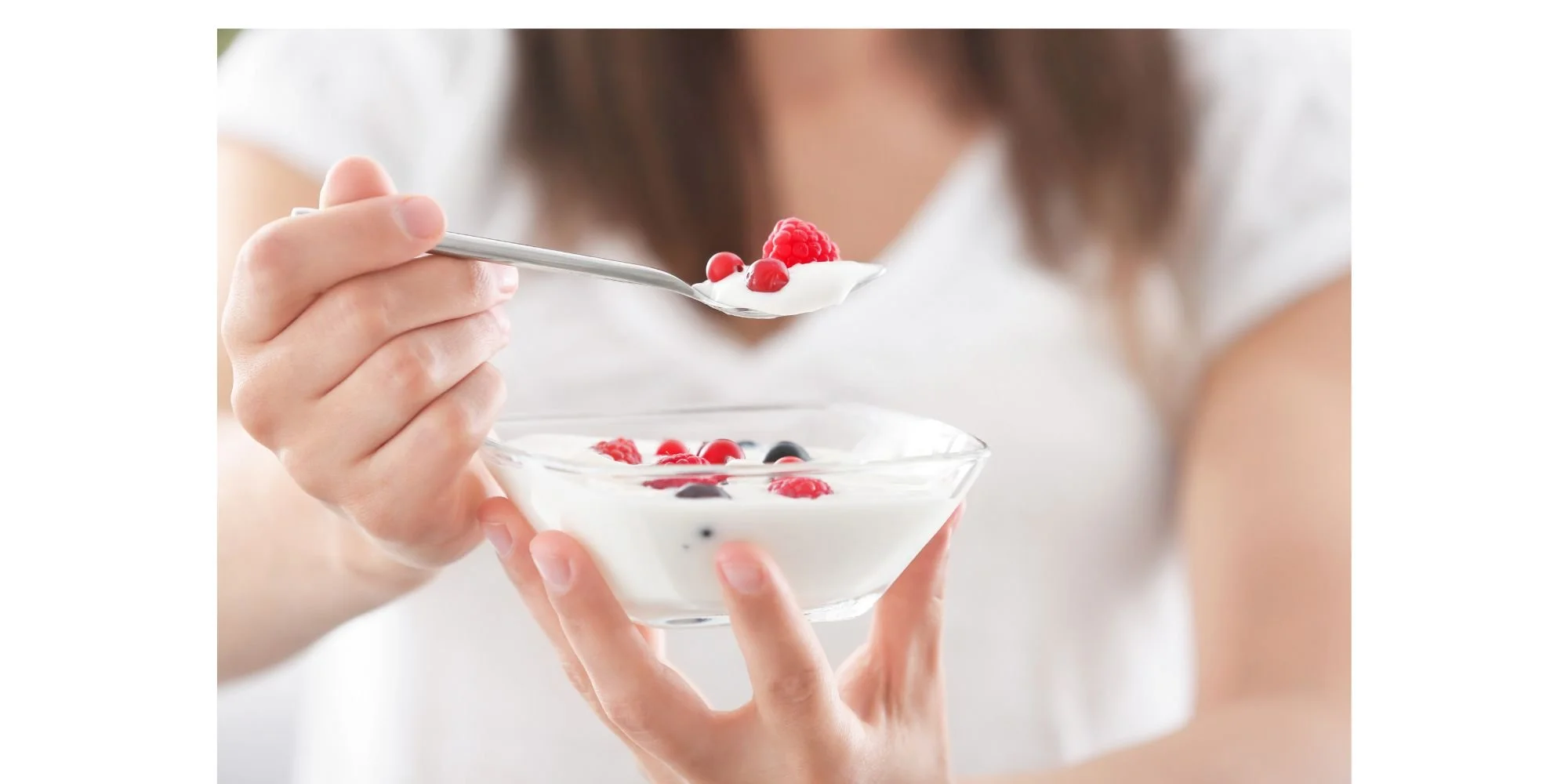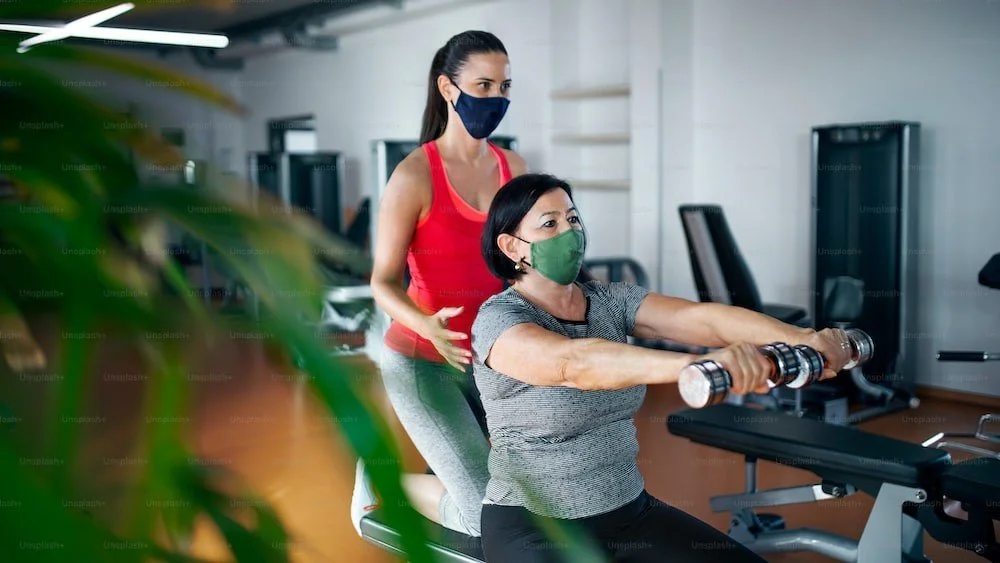Menopause and perimenopause can result in a number of new changes to the body, including to our bone health and density. We reach peak bone density at around 30 years old. Our bones are the strongest they will ever be at this time, and after this we gradually begin to lose bone strength and density over time and going into menopause.
During menopause, reduced levels of the female hormone oestrogen increases the rate of bone and calcium loss, which affects bone health and can increase the risk of osteoporosis.
In this article, our dietitian Hollie provides some top tips to help keep your bones as strong and healthy as possible during menopause in order to reduce the risk of osteoporosis and other bone-related issues.
1. Include rich sources of calcium daily
Calcium is one of the main ingredients of bone, and it’s essential for bone health as well as cell, muscle, heart, and nerve function, especially in menopause. We don’t make calcium on our own — it comes from dietary sources (which are the safest and most effective) or calcium supplements. If there isn’t enough calcium in the bloodstream, the body raids the bones for supplies, thinning the bones.
Sources of calcium to support bone health during menopause include:
Dairy foods such as milk, cheese and yoghurt - aim for 2-3 servings per day through a combination of these foods. Serving size equals 200mls (glass) of milk, 25g (matchbox size) cheese or 150g (pot) yoghurt.
Plant-based dairy alternatives which are fortified with calcium such as almond milk or soy yoghurt. Avoid organic versions of these foods as they are not fortified with calcium.
Hard set tofu
Dark leafy greens
Tahini/sesame seeds
Sardines (with bones)
2. Eat a balanced diet with plenty of variety
While calcium is an essential nutrient for bone health, other nutrients are required in the diet to support strong bones such as protein, magnesium, phosphorous, and potassium. Sources of these nutrients include fruits, vegetables, legumes, nuts, seeds, and lean proteins which can be obtained through healthy balanced eating.
3. Take a vitamin D supplement in the winter months
Vitamin D is important for many body systems, especially our bones. Vitamin D helps our bodies to absorb calcium (in the gut, which sends it to the bloodstream), and to regulate blood levels of calcium and phosphorus (which are needed to build bone).
We obtain the majority of our vitamin D through sun exposure, however in Ireland sun exposure is reduced for many of us in the winter months. For this reason, it is recommended to supplement with a vitamin D supplement from October to March which contains 600IU / 15µg.
Food sources of vitamin D include salmon, mushrooms, egg yolks, fortified milk or orange juice. Even if you consume these foods regularly – it is still advisable to take a vitamin D supplement to ensure adequate intake.
4. Exercise regularly
Exercise is so important for many aspects of health – our bones included! The best type of exercise to strengthen bones are a combination of weight-bearing / impact exercise and muscle strengthening exercises. This can be especially beneficial during menopause when both bone density and muscle mass begins to reduce.
Weight bearing exercise with impact are any exercises involves being on your feet and adding an additional force or jolt through your skeleton. Examples include: brisk walking, jogging, volleyball, skipping or jumping jacks.
Strengthening the muscles is important as the stronger the muscles are, the harder they pull on your bones which in turn strengthens the bones. Examples of muscle strengthening exercises include – bodyweight exercises (e.g. squats, push up’s, sit up’s), weight lifting, Pilates and more active forms of yoga (e.g. vinyasa or ashtanga).
5. Avoid smoking and limit alcohol
A high alcohol intake is associated with an increased risk of osteoporosis, fracture risk and falls. Aiming to stay within the safe intake guidelines which are 11 standard drinks per week, with at least 2 alcohol-free days per week, can be especially beneficial for your bone health during menopause.
We know that smoking any amount of cigarettes is damaging to general health and no safe intake is recommended. Smoking affects bone health as it leads to an increase in bone loss, risk of osteoporosis and hip fracture, so eliminating this habit will be especially beneficial for bone health, as well as your health overall.
October is Menopause Awareness Month, with World Menopause Day on Wednesday 18th October - find out more here!
Read more about our women’s health services here.
Written by: Hollie Corrigan, CORU Registered Dietitian with Spectrum Nutrition



